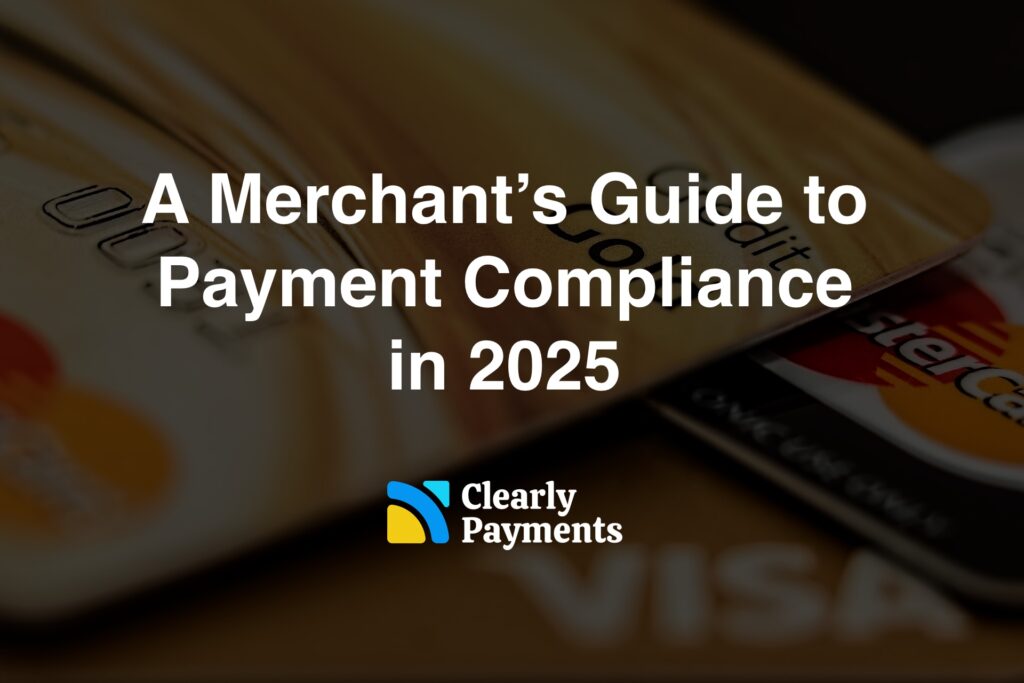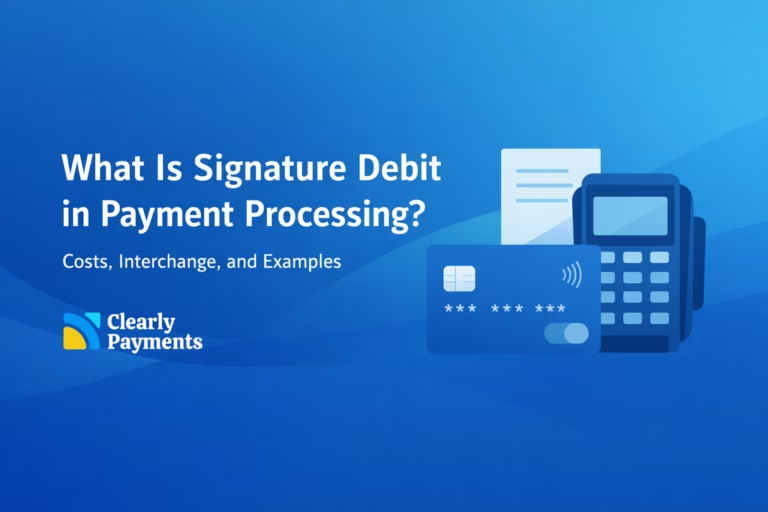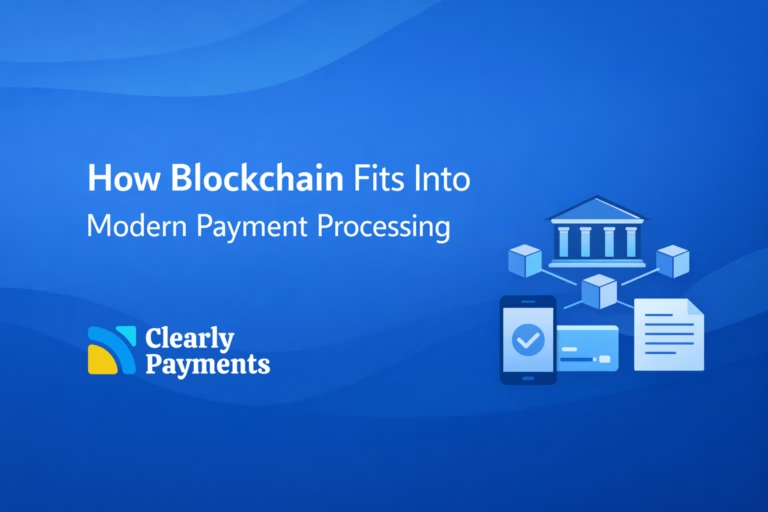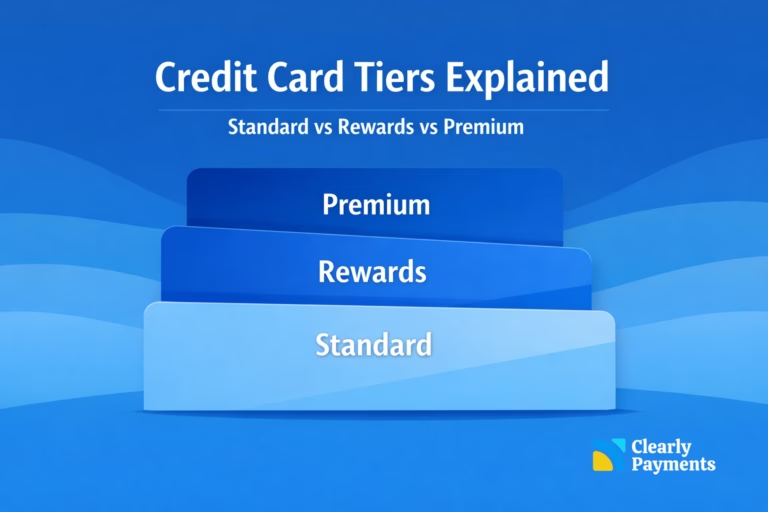In 2025, staying compliant with payment rules is essential for businesses of every size. Card networks like Visa and Mastercard are enforcing stricter standards, regulators are expanding privacy laws, and payment providers are under pressure to monitor merchant activity more closely.
For merchants, this means one thing: understanding and managing payment compliance is no longer optional, it’s necessary to keep processing payments smoothly and growing your business without interruption.
This guide breaks down what compliance really means, why it matters, and how to stay ahead of it, with simple explanations and real-world facts.
What Is Payment Compliance?
Payment compliance means following the rules that govern how businesses accept and handle card payments. These rules come from multiple sources, including card networks, regulators, and your payment processor.
At its core, payment compliance involves:
- Handling card data securely
- Providing transparent product and refund policies
- Selling what you’re approved to sell
- Managing fraud and chargebacks
- Meeting business verification and reporting requirements
Why it matters:
Non-compliance can lead to frozen funds, higher processing fees, termination of your account, or placement on the MATCH list, which can prevent you from accepting cards at all.
Why Compliance Matters for Your Business
Staying compliant protects your ability to operate and keeps payment disruptions to a minimum. It also helps reduce fraud, chargebacks, and reputational damage.
Some key facts:
- Visa’s chargeback threshold is 0.9% of total transactions. Mastercard’s is 1.0%.
- In 2024, over 25,000 merchants were placed on the MATCH list, limiting their ability to work with most payment processors.
- Global losses from payment fraud hit $38.5 billion in 2024, much of it linked to poor controls or misaligned policies.
- Merchants with clear refund and billing policies see up to 30% fewer disputes, according to a 2023 Verifi study.
Compliance isn’t just about avoiding penalties — it directly impacts customer trust, transaction approvals, and revenue flow.
PCI DSS and Secure Card Handling
If your business accepts credit or debit cards, you must comply with the Payment Card Industry Data Security Standard (PCI DSS). These are global rules designed to keep cardholder data secure.
What merchants need to know in 2025:
- PCI DSS version 4.0 is rolling out, with new requirements around authentication, encryption, and risk monitoring.
- Even if you use a hosted checkout or third-party platform, you still have responsibilities.
- Non-compliance can result in fines ranging from $5,000 to $100,000 per month, depending on your provider and risk level.
Clearly Payments helps merchants stay PCI-compliant through guided tools and platform-level security.
Clear Terms, Billing Descriptors, & Refund Policies
Many chargebacks happen not because of fraud, but because customers don’t recognize the charge or feel misled.
Best practices:
- Use a clear, recognizable business name and billing descriptor.
- Make refund and return policies easy to find on your website.
- Be transparent about what’s included in the purchase.
Poor documentation is one of the most common triggers for payment disputes. Keeping things simple and upfront can dramatically reduce risk.
Chargeback Monitoring and Prevention
Chargebacks are costly, they mean lost revenue, fees, and potential processor penalties. They’re also a key compliance area.
Visa and Mastercard thresholds (2025):
- Visa: 0.9% of total transactions
- Mastercard: 1.0%
- Some processors will flag merchants at even lower levels.
To stay in good standing:
- Respond to disputes promptly
- Use pre-transaction fraud tools (3DS2, address verification, etc.)
- Work with a processor like Clearly Payments that alerts you when your rate rises
Staying under the chargeback limit can mean the difference between long-term payment success and account termination.
KYB, Product Restrictions, and Transparency
All processors are required to follow Know Your Business (KYB) regulations. This means verifying your identity, your business activities, and what products or services you’re selling.
Why it matters:
- Selling restricted products without proper disclosure (e.g., supplements, financial services, adult content) can result in instant termination.
- Even businesses in standard categories must inform their processor of major changes (e.g., switching from selling software to physical products).
Being upfront with your provider helps you avoid unexpected holds or account freezes.
How Clearly Payments Supports Compliance
Clearly Payments is built with compliance and transparency at its core. We support merchants with tools and guidance to help you stay on top of evolving requirements, without the red tape.
Here’s how we help:
PCI Compliance Support: Easy onboarding and automated tools to stay certified.
Clear Setup Guidance: We help ensure your terms, policies, and billing descriptors are in line.
Chargeback Alerts: Get notified early if you’re trending toward card brand limits.
Ongoing Risk Monitoring: We keep you informed and protected as your business grows.
Human Support: Our compliance team is available when questions come up.
Whether you’re launching your first store or scaling a growing operation, we make compliance simple and manageable.




